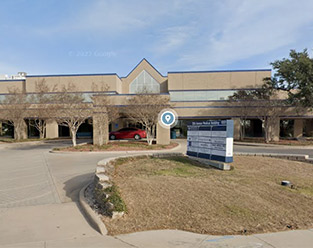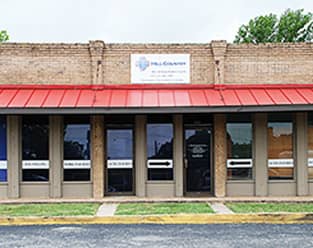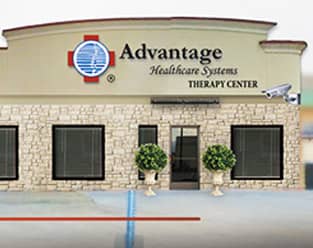Why It’s in Your Best Interest to See Your Primary Care Doctor After a Bump or Blow to the Head
 When you suffer any type of bump or blow to the head, chances are good that you’ve sustained a concussion or some other level of traumatic brain injury (TBI). You may think that you need to immediately set up an appointment with a specialist, but in many instances, the best place to initiate care is with your primary doctor, someone like Advantage Healthcare Systems, in Dallas, Texas. Here’s how Advantage Healthcare Systems can help you after a head injury.
When you suffer any type of bump or blow to the head, chances are good that you’ve sustained a concussion or some other level of traumatic brain injury (TBI). You may think that you need to immediately set up an appointment with a specialist, but in many instances, the best place to initiate care is with your primary doctor, someone like Advantage Healthcare Systems, in Dallas, Texas. Here’s how Advantage Healthcare Systems can help you after a head injury.
What Are the Different Types of Potential Head Injuries?
At the most fundamental level, a brain injury is categorized as either a traumatic brain injury (TBI) or an acquired brain injury (ABI). Traumatic brain injuries are those that are caused by some external event, force, or action. Acquired brain injuries generally stem from illness, disease, or degenerative conditions.
Traumatic brain injuries are further identified as mild, moderate, or severe. When they are determined to be mild (which some 75-90% are), they are commonly referred to as concussions. An estimated 3.5 million+ people seek medical care every year for a concussion or mild TBI.
What Can Your Primary Care Physician Do to Help You After a Head Injury?
Your primary care physician should have the training, knowledge, skills, experience, and resources to fully assess your injury and determine the most effective plan for maximum recovery. Imaging tests, such as X-rays and MRIs, commonly used for many other types of medical evaluations, are only of limited value when you’ve suffered a concussion or more serious traumatic brain injury. Your doctor should conduct a thorough physical and cognitive examination, evaluating a wide range of issues, including your speech and hearing, coordination and balance, sensory and motor skills, and mental acuity.
One of the most commonly used tools for determining the presence and extent of a head injury is the Glasgow Coma Scale (GCS). Most primary care physicians know how to administer and interpret the GCS. It involves a careful assessment of three types of responses:
- Your eye response to external stimuli—This tests how awake and alert you are. It may involve actions that directly test what you see, but it may also include applying pressure to other parts of your body to see if it changes your level of consciousness. Are your eyes closed until you feel the pressure? Do your eyes respond to pressure?
- Your verbal responses to questions—How you answer questions indicates how well your brain is functioning. Your doctor will ask you some basic questions, such as where you live, what year it is, or why you’re visiting the doctor.
- Your ability to use your motor skills to respond to external stimuli—This part of the test assesses the physical connections between your brain and body. It looks primarily at your physical reflexes. Do you respond as expected to physical stimuli?
Each section of the GCS allows a certain number of points. The motor skills have a maximum of six points, the verbal responses five points, and the eye responses four points. If you score 13 or above, you will be diagnosed with a concussion. A score of nine to 12 is considered a moderate TBI, and anything below nine is deemed to be a severe traumatic brain injury.
Contact Us To Set Up an Appointment
At Advantage Healthcare Systems, we have extensive experience working successfully with people who have suffered any type of head injury, whether it’s ultimately diagnosed as a concussion or another form of traumatic brain injury. We have the tools and knowledge to carefully evaluate your medical condition. We may opt to prescribe and monitor a regimen of care ourselves, or we may refer you to a specialist, such as a neurologist or physiatrist, if deemed medically necessary. Call us toll-free at 1-877-487-8289 or fill out the form provided below to schedule an assessment. We offer locations across Texas, including Fort Worth, Dallas, and San Antonio.





